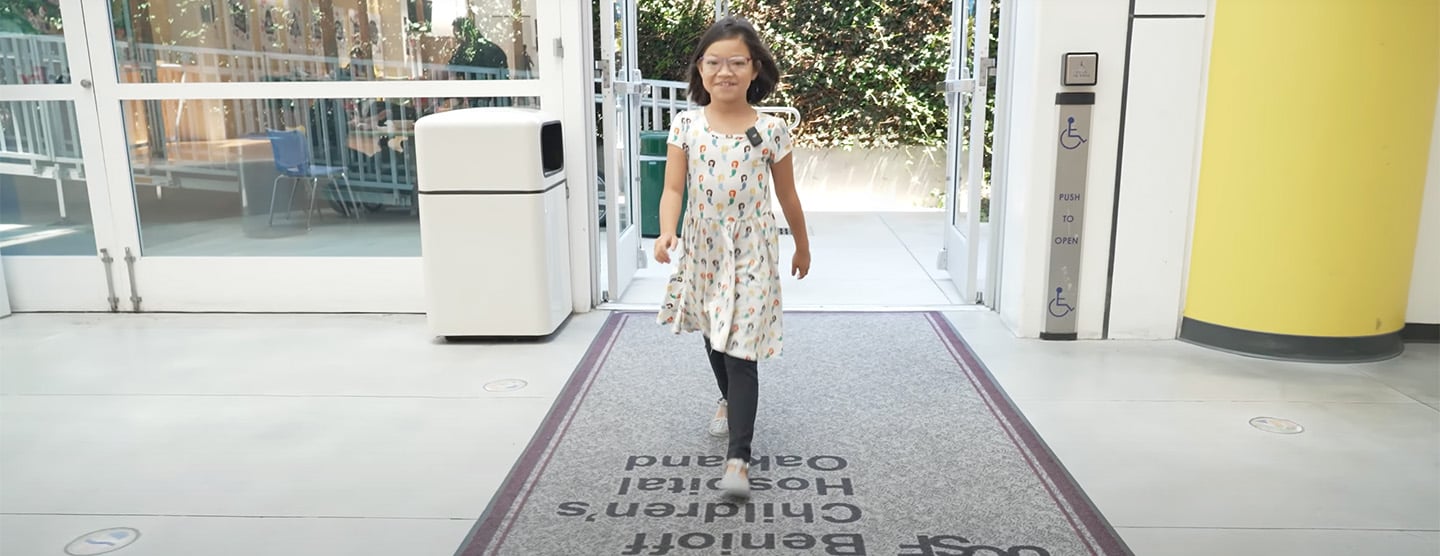
Thalassemia Center
The UCSF Comprehensive Thalassemia Center, on our Oakland campus, is one of the nation's premier programs for the study and treatment of thalassemia. We are dedicated to providing comprehensive care for children and adults affected by this inherited blood disorder.
In thalassemia, a single-gene mutation causes the body to make insufficient hemoglobin (the protein in red blood cells that carries oxygen throughout the body), leading to anemia. The condition's severity depends on how many defective copies of the gene an individual inherited.
People with one defective copy of the gene are said to have "thalassemia trait." They may have mild anemia, but it doesn't cause health problems or require treatment. Thalassemia trait is a common inherited condition in people of Asian, Mediterranean, African or Middle Eastern background. If you or your child has been diagnosed with anemia, it's important to learn whether thalassemia trait is the underlying cause. Talk to your primary care provider about testing for thalassemia trait. Screening is easy and starts with a simple blood test.
It's especially important to be screened if you're considering having biological children. When both parents have thalassemia trait, their child has a 1-in-4 chance of inheriting two or more defective genes, which leads to low hemoglobin levels and thalassemia disease.
Thalassemia disease comes in different forms with different degrees of severity. People with a mild case may need no treatment or only an occasional blood transfusion to address the anemia. People with a severe form of the disease need blood transfusions every few weeks, as well as regular chelation therapy (a treatment that prevents iron from building up to dangerous levels in the blood).
Thalassemia can cause multiple medical issues, so our center brings together specialists from a variety of disciplines to collaborate on each patient's care. Our team includes doctors with expertise in the heart, liver, endocrine system, dentistry, vision, hearing and nutrition. In addition, specialty nurses, social workers, genetic counselors, child life specialists, psychologists and other health care professionals work together to support patients and their families. Through a mix of clinic and video visits, our specialists develop individualized care plans and work closely with patients' local providers to ensure optimal care.
We offer a range of supportive options to help patients maintain their target hemoglobin levels and track their iron levels. Our advanced blood banking allows patients with rare blood groups or with red blood cell antibodies to access regular transfusions. Specialized MRI technology is available to monitor iron levels in the liver, heart and other parts of the body. UCSF's Hemoglobinopathy Reference Lab Laboratory offers advanced methods for diagnosing the rare forms of thalassemia.
In addition to providing everyday care, we are pioneering new treatments for thalassemia. We are one of the nation's leading centers for the gene therapy (administered through bone marrow transplantation) that can cure severe forms of thalassemia. Potential candidates are evaluated in the Blood and Marrow Transplant (BMT) Clinic, and a transplant is offered to those who are eligible and have a suitable donor.
Together with the UCSF Fetal Treatment Center, we have established the first program dedicated to alpha thalassemia major (also known as hydrops fetalis). The program brings together a range of specialists to address the complex medical issues faced by a family with a pregnancy affected by alpha thalassemia major.
Our center's renowned research program enables us to offer the most up-to-date, innovative therapies and to bring our patients opportunities to participate in clinical trials (studies of promising treatments). Thanks to studies that have led to advances in understanding and technology, individuals with thalassemia can now expect life expectancy and quality of life similar to those of the general population.
For more information on our services and living with thalassemia, visit the Thalassemia Center's website.
Our locations (1)
Patient stories
Life-changing gene therapy helps kids with beta thalassemia
This newly approved treatment allows children like Ada to thrive without monthly transfusions.
Our team
-

Ayca Erkin-Cakmak
MD, MPH
Pediatric endocrinologist -

Ashutosh Lal
MD
Pediatric hematologist-oncologist -

Sylvia Singer
MD
Pediatric hematologist-oncologist -

Elliott Vichinsky
MD
Pediatric hematologist-oncologist -

Madhav Vissa
MD, MS
Pediatric hematologist-oncologist -

Beth Apsel Winger
MD, PhD
Pediatric hematologist-oncologist
Awards & recognition
-

Ranked among the nation's best in 11 specialties
Plan your visit
What to Bring
- Photo I.D.
- Health insurance card
- Insurance authorization, if required
- Doctor's referral, if required
- Recent test results related to your child's condition
- List of medications, including dosages, plus any your child is allergic to
- List of questions you may have
- Device or paper for taking notes
Related clinics (4)
 3
3
Blood & Marrow Transplant (BMT) Clinic
 7
7
Hematology Clinic
Support services
Staff superheroes
It’s a bird. It’s a plane. It’s a window washer! Dressed as a superhero to clean and brighten your day.



















































